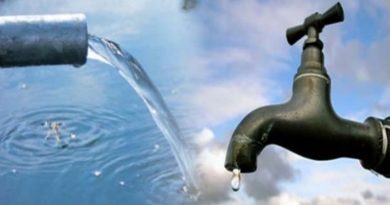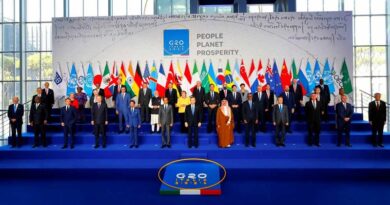African civil society groups to Europe: Don’t hijack our renewable energy
About 200 African civil society organisations on Thursday April 6, 2017 issued a strong condemnation of European manipulation and compromising of the Africa Renewable Energy Initiative (AREI). Tensions have erupted over the actions of France and the European Commission, who are accused of risking the initiative’s African sovereignty, and of bypassing processes including social and environmental criteria to push approval of projects, to the cost of African citizens.
The AREI was launched in 2015 in Paris during COP21 as an African-led initiative with the goal of providing at least 10 GW of new renewable energy to Africa’s peoples by 2020, and put the continent on course to add at least another 300 GW and achieve universal access to energy for all Africans by 2030. It was supported by $10 billion in pledges for 2015-2020 by developed countries in Paris, and has been hailed as a groundbreaking effort to bring clean, affordable, and reliable energy to millions of people in a democratic, human-right focused approach.
However African civil society groups understand that at a recent AREI Board Meeting, France and the European Commission abused their position as donors to override the views of several Africans on the AREI Board, by announcing and pushing through approval of 19 projects that were not subject to AREI evaluation criteria or social, environmental, and gender safeguards.
They did so apparently without being formal Board Members, in the face of objections by several African Board Members, and apparently without participation of the countries hosting the projects. They furthermore pushed for the undue imposition of EU technical experts to supposedly influence AREI’s future development. France and the EU have pledged to provide funds to support “new and additional” renewable energy capacity, but these promises are being broken in their attempt to rebrand some already existing projects as AREI projects.
The groups in a press statement sent to Ecogreen News said the compromising of AREI principles threatens its very core and has prompted a diverse swathe of African civil society to rally behind a set of demands, in an attempt to regain control of the initiative for African countries.
A letter signed by almost 200 African civil society organisations demanded:
That African countries immediately take action to put AREI back on track and ensure full independence from donors and other third parties.
That EU and France abandon aspirations to have seats as Board members.
That AREI Board ‘endorsement’ of the 19 existing EU projects be suspended until they are subject to a thorough review against AREI criteria, environmental and social safeguards, and have the prior informed consent of States and citizens concerned.
That all further funding and proposed projects be genuinely “new and additional,” with no more accounting tricks.
That AREI be fully accountable, transparent and participatory for African states and for civil society in all aspects.
And that active participation by all civil society constituencies be ensured at all levels of AREI.
Kumi Naidoo of Africans Rising for Justice, Peace and Dignity said, “This clear undermining of African governance belongs to an era we supposedly left in the past. The AREI is meant to be an African-led initiative, but here we have the EU undermining years of work by going over the heads of African governments and pushing through projects without public participation or adequate safeguards. The sad irony is that these powers grab flies in the face of what the EU and France themselves agreed.”
Mithika Mwende of the Pan-African Climate Justice Alliance said, “AREI has been a great example of African leadership in rising above political stalemates to tackle the climate crisis. Now the EU is claiming credit for the hard work of African peoples and governments, while at the same time making it harder for AREI to hit its targets of delivering 300 GW of new renewable power by 2030.”
Titilope Akosa of Centre for 21st Century Issues said, “This continent has seen too many bad development projects already, which is why AREI was created with robust safeguards in mind to ensure that all stakeholders could be consulted and that human rights would be respected. With the EU pushing through approval for these 19 projects without review according to AREI’s criteria, they are effectively trampling over badly needed protections for women, indigenous people, and other constituencies.”
In his own contribution, Godwin Ojo of Environmental Rights Action –Nigeria said, “AREI is one of the major legacies from COP21 in Paris and gives us all hope, yet France and the European Commission’s heavy-handed efforts in AREI place this legacy at risk, and undermine trust in the UN climate change process to deliver real solutions for our peoples, and in Europe as a genuine partner for sustainable development in Africa.”
Rhoda Boateng of the International Trade Union Confederation-Africa said, “European donors know how to talk the talk but do they know how to walk the walk? If the latest developments are anything to go by, they don’t. A just transition to clean, affordable, democratic energy requires billions — billions which were promised but which we are now told will appear by magic as a result of a much smaller investment of a few hundred million. People in Africa need concrete investments in renewable energy, not a lottery ticket.”



